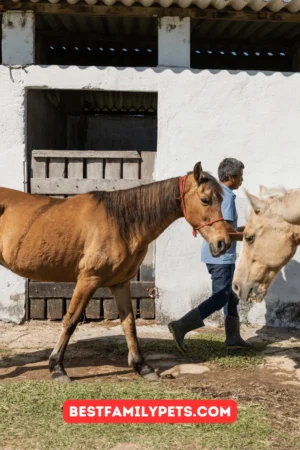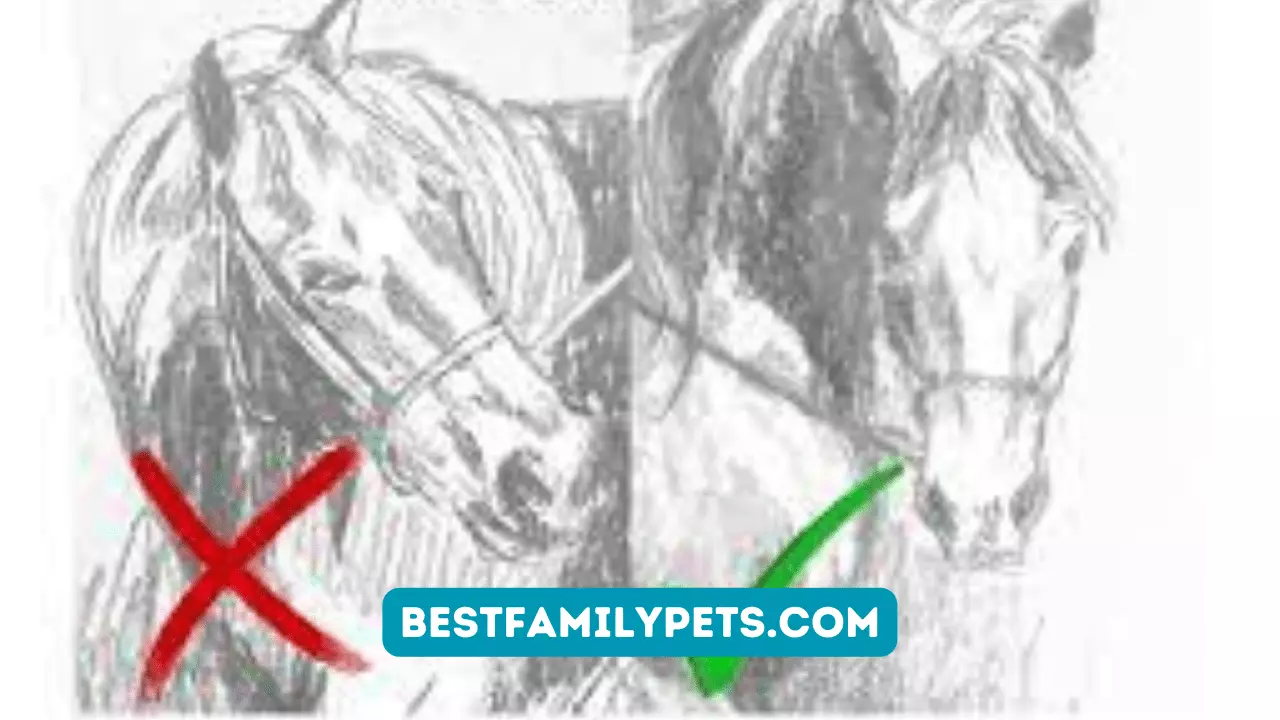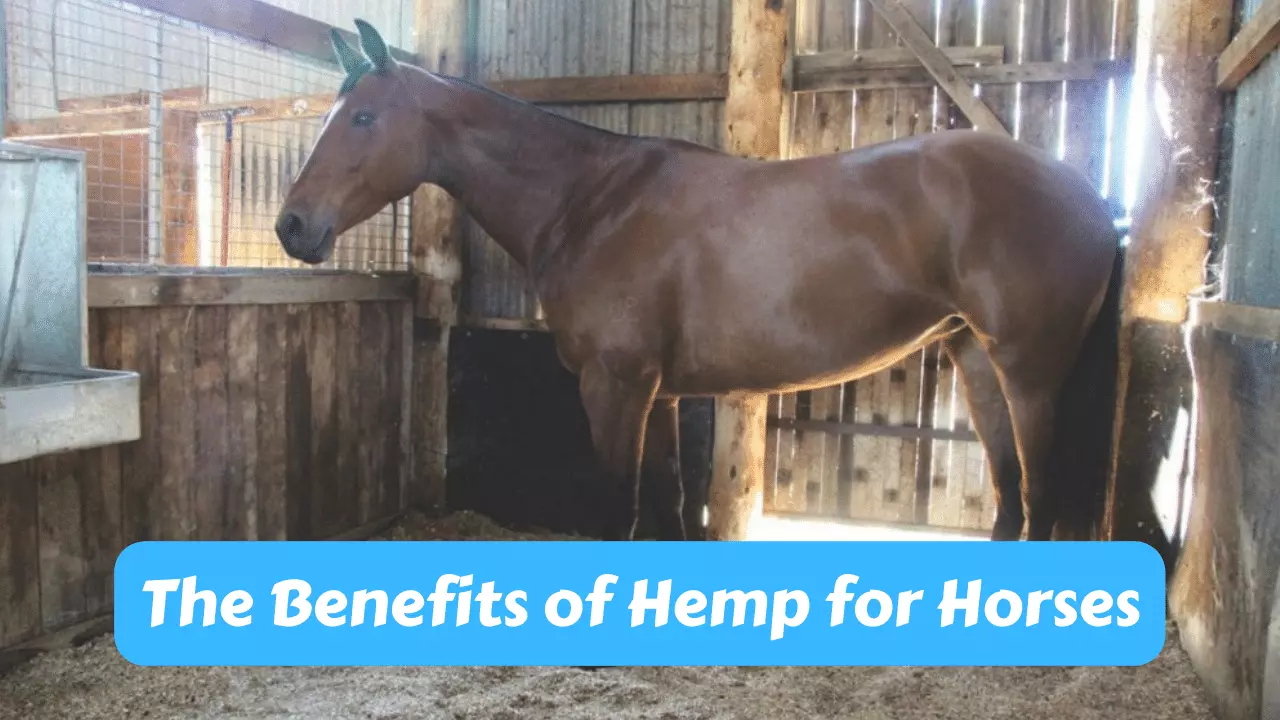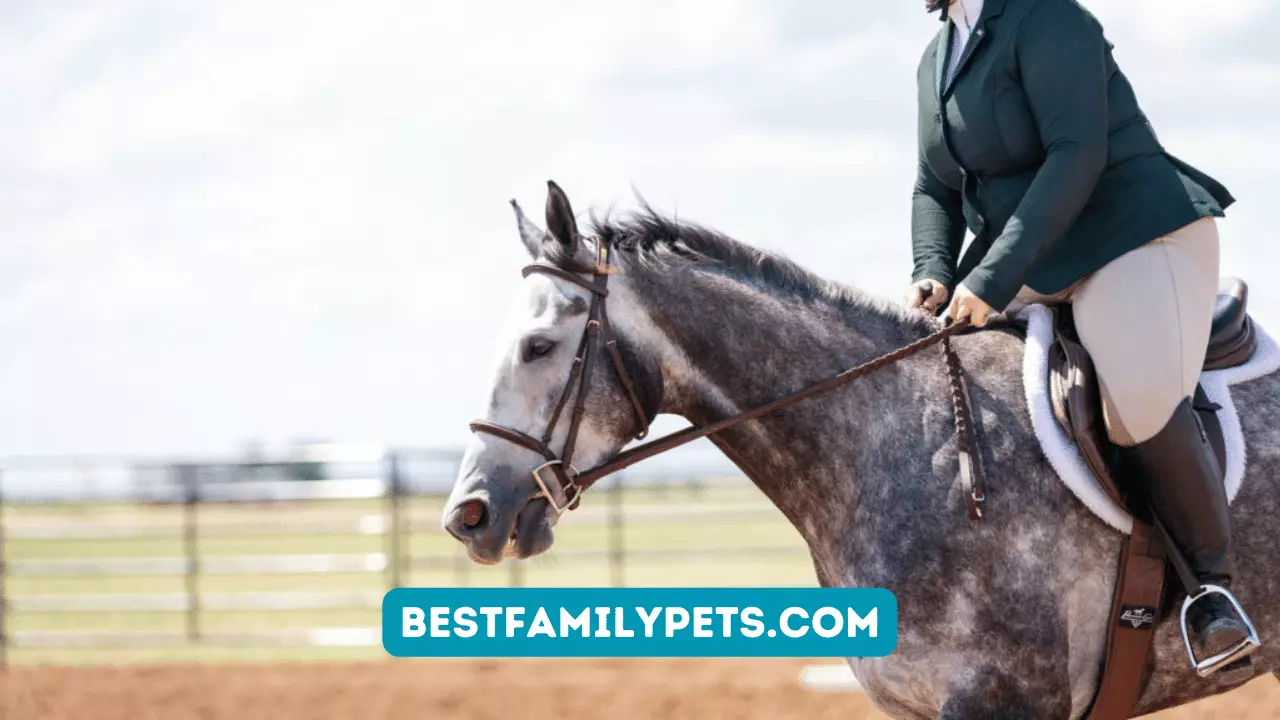The Morgan – Origin of the Breed
Explore the fascinating history of the Morgan horse breed. Learn about its origins and evolution into the beloved breed it is today.
The Morgan is a breed coming from the United States; its name comes from the creator of the breed, Justin Morgan. The founding stallion of the breed was first called Figure and then finally took the name of its owner. Figure was a very physical horse.
He had an exceptional body and muscular build, heightened pace, an adorable character and he was quick and enduring. The perfect horse we can say. Sherman, Bulrush and Wood bury his sons all three kept the characteristics of their father. Figure finally succumbed to injuries due to a keg but the Morgan breed had arrived.
The Morgan influenced other races through their blood. These include the Standard bread, Quarter Horse, Tennessee and the American saddle horse.
At the beginning of the race, in 1800, the Morgan was used for agricultural work in the forest or in the fields, as well as for the displacement of the families owning the horse. In 1850, Morgan horses were known throughout the United States and renowned for their character and physique.
They were therefore sold at a high price on the markets and the breed knew its expansion. Unfortunately, in 1961, the Civil War in the United States dedicated the Morgan to war and over 1,200 horses requisitioned, only 200 survived.
A pony-sized horse
The Morgan are between 1.40 m and 1.52 m at the withers: small horses but great athletes.
They have round and regular feet with limbs well placed on the ground. When stopped, the horse Morgan tends to camp the hindquarters while he keeps the anterior well parallel. It is the neckline and the rump that gives the Morgan all this impression of strength and power. The neck is straight, thick and muscular, bringing out the withers. The rump is rounded, long and thighs strong. This end of body contrasts with the back of the horse which is rather short.
The Morgans are horses with very varied dresses, black, chestnut, gray, palomino, dun, buckskin. A Morgan can not be gray or Pie.
A preserved character
After the physical, let’s talk about the metal. As said before, the Morgan descends from a “perfect” parent.
This character has been passed on to future generations. Generally these horses are quite independent although cooperative and full of good will.
Rather intelligent, they work hard until finished. They are enduring battants. As a result, the Morgan is a fairly versatile horse. His trot gathered together makes him a perfect horse for therapy and an excellent riding horse. The Morgan is really a hardworking and enthusiastic horse.
The Morgan today
Morgan’s stud book was created in 1894 in the United States. About 150,000 horses are listed in this stud book. Since 1961, the Morgan is the official animal of the State of Vermont (USA); the state even owns the Morgan’s official museum.
Although the United States continues to perpetrate the breed and mix Morgan’s blood with trotters, Australia is also a fan of the breed. They started importing them in 1800 to also improve their own trotters. The Morgan breed is therefore quite present in the United States as in Australia and it is difficult to find it in France for example. Only the importation of the breed allows having horses of “quality”.
The American Morgan Horse and the Morgan Horse Association (in Australia) respectively promote the breed through different events and also allow registering his horse and thus finding the best horses.
Currently a good Morgan costs about $ 10,000 (about € 7,000). In comparison, a good French Saddle returns to 20 000. But, like all breeds and horses, prices vary drastically from one pedigree to another.
The famous Morgan
There are few famous Morgans currently. In the past, Ethan Allen and Black Hawk were two competitive trotters who won many victories and brought their blood to the current American Trotters.
Comanche is also among the Morgan’s most significant history because this horse saved his rider, Captain Keog, during the Civil War while the entire detachment of the captain was killed. Injured, he was treated for several months before being retired.
-

Hydration Hacks: Ensuring Proper Watering for Your Horse
-



Should Horses be Left Inside or Outside the Field Shelters?
-



How To Identify And Treat Common Back Problems Of Horses?
-



A Detailed Guide About Ifor Williams Horse Trailer
-



What Is Lateral Flexion in Horses, and How to Improve It?
-



Trailer Review: The Sims 4 Horse Ranch Expansion Pack – The Joy of Equestrian
-



Senior Horse Feed: Meeting The Nutritional Needs Of Your Aging Equine
-



5 Ways To Improve Your Horse’s Gut Health
-



5 Ways To Keep Your Horse Healthy
-



The Benefits of Hemp for Horses
-



Four Ways To Be A Better Horseback Rider
-



How to Compete in Your First Horse Show?



